This article was co-authored by Jurdy Dugdale, RN. Jurdy Dugdale is a Registered Nurse in Florida. She received her Nursing License from the Florida Board of Nursing in 1989.
There are 11 references cited in this article, which can be found at the bottom of the page.
This article has been viewed 38,367 times.
When a person has overdosed on drugs or ingested a dangerous amount of alcohol, activated charcoal can be used to help save a person from longterm effects or even death. Activated charcoal can also be used to save a pets life if they eat something dangerous. The activated charcoal works by coating the stomach and preventing it from absorbing these intoxicants, slowing or stopping their progression into the bloodstream. Some studies have shown that activated charcoal works best when administered quickly after ingesting an intoxicant.[1] Because of this, you'll want to know how to quickly deliver a proper dose of activated charcoal to someone in the event they should need it.
Steps
Administering Activated Charcoal to a Human in an Emergency Situation
-
1Contact emergency services. Before you administer activated charcoal, you will want to contact emergency services or poison control. In some cases, administering activated charcoal can actually cause a person harm or complicate the medical emergency. Make sure you have the approval of a medical professional before you give anyone activated charcoal.
- In the United States, call 911 for emergency personnel, or call 1-800-222-1222 for Poison Control. Call 911 before calling Poison Control.
- Wait for instructions from emergency services or poison control. They may not advise you to use activated charcoal.
- Follow any instructions you receive exactly. If they tell you to use ipecac syrup or to bring the person into the ER, do not give the person activated charcoal. Instead, follow their advice.
-
2Determine if you should give ipecac syrup instead of the charcoal. In some cases, poison control or emergency services might give or recommend ipecac syrup instead of activated charcoal. In this case, you must administer 10 to 30 mL of ipecac syrup to induce vomiting. Do not administer ipecac if the person has ingested a highly corrosive poison, such as gasoline. Ask poison control personnel for guidance.[2]
- Do not use ipecac if the person has alcohol poisoning or has passed out, as the vomit can be breathed into the lungs.
Advertisement -
3Prepare a dose of activated charcoal. If there are not other options for treatment, emergency services may help you prepare an appropriate dose of activated charcoal. Measure out the correct amount of powdered charcoal, before mixing it with water and giving it to the patient. Take a look at some of these general guidelines to help give you an idea of what appropriate doses might look like:[3]
- Adults will need between 25 to 100 grams of activated charcoal.
- Children between 1 and 12 years old will require between 25 to 50 grams of activated charcoal.
- Do not give it to children under 1. Your doctor or emergency services may recommend ipecac syrup instead.
-
4Thoroughly shake liquid forms of activated charcoal. Liquid forms of activated charcoal are prone to settling. Always make sure you have fully shaken the container to deliver the full dose of activated charcoal.[4]
-
5Have the patient drink the entire dose. It's important that the ill person takes the entire dose of activated charcoal in the container. To facilitate this, you can refill the container with water after the first dose and have the person drink that as well. Continue in this way until all of the activated charcoal has been consumed.[5]
- Make sure the person sitting upright and is able to drink the mixture. Do not give activated charcoal to someone who is passed out.
- You may need to help the person raise their head up if they are unable to sit upright.
-
6Bring the person to the ER afterwards. It is important that the person is monitored to make sure that their condition does not get worse. In some cases, they may require IV fluids or other treatments. If emergency services do not come to you, you may need to take the person to the ER yourself.
Knowing When to Administer Activated Charcoal to a Person
-
1Call emergency services for help. Although you may be able to purchase activated charcoal without a prescription, you will want to call trained medical professionals to learn exactly how to administer it. There are some cases where an individual may be harmed by taking activated charcoal. To ensure proper safety, you'll want to have a medical professional's instruction and approval before administering activated charcoal.[6]
- In the United States, call 911 for emergency personnel, or call 1-800-222-1222 for Poison Control.
- Contact your doctor, poison control center or other emergency services before administering activated charcoal.
- You will need to learn if activated charcoal is appropriate for your medical emergency.
- Emergency services may be able to tell you how much activated charcoal you should administer. In some cases, they may not recommend it at all.
- Do not administer activated charcoal without the instruction of a medical professional. If you are going somewhere isolated without medical assistance, talk to your doctor beforehand about using activated charcoal.
-
2Know when not to use activated charcoal. In many cases, activated charcoal can help someone who has been intoxicated. However, there are some substances that won't be affected by activated charcoal. You'll want to know when not to use activated charcoal to help keep the intoxicated person safe and get them the care they most need. Do not administer activated charcoal if the person has consumed any of the following substances:[7]
- Corrosive agents such as toilet bowl cleaners, paint removers and drain cleaners.
- Powerful acids like car battery fluid, metal cleaners and rust removers.
- Iron
- Boric acid
- Lithium
- Gasoline or kerosene
- Alcohol
-
3Know which form of activated charcoal to administer. Knowing which forms activated charcoal can be found in will help you know how best to administer them. Appropriate dosage levels can also be affected by the form your activated charcoal comes in. Take a look at some of these common forms that activated charcoal comes in to help you better administer it if the need should arise.[8]
- Liquids will often be premixed and ready to administer. Many liquid forms of activated charcoal will be suspensions, requiring you to shake them thoroughly before giving them to someone.
- Tablets can be a quick and easy way to administer pre-measured doses activated charcoal.
- Powders will need to be carefully measured before mixing with water.
-
4Know who can use activated charcoal and when. You won't be able to administer activated charcoal to everyone in the same manner. A person's medical history, age and reason for needing activated charcoal will all affect how you give them the activated charcoal. In many cases, you should only use activated charcoal if there are no other options. Discuss some of the following information with emergency services before administering activated charcoal:[9]
- Tell emergency services about any allergies.
- Tell your doctor or emergency services about any medications you are taking.
- Make any preexisting medical conditions known before administering activated charcoal.
- Do not give activated charcoal to anyone who is unconscious or having trouble focusing.[10]
- You should not administer activated charcoal to children without direct supervision from emergency services.
Following up After Administering Activated Charcoal to a Person
-
1Do not take any other medications or food after a dose of activated charcoal. Taking a medication after receiving a dose of activated charcoal can result in that medication being blocked from absorption into the blood stream. Certain foods may stop the activated charcoal from working properly. Always make sure that you administer activated charcoal by itself to avoid complications.[11]
- Avoid eating for 8 hours to help the charcoal move through your system. Keep in mind that charcoal might make you vomit.
- Chocolate syrup and ice cream may prevent activated charcoal from functioning properly.
- Wait at least 2 hours after taking activated charcoal before taking any medications.
-
2Be ready for side effects. Activated charcoal can have a few side effects, some being more common that others. Knowing which side effects are considered normal can help you learn if the patient's condition is improving or worsening. Review this list of common side effects caused by activated charcoal to learn what you might expect after a dose has been administered:[12]
- It is not very common for pain or swelling in the stomach to occur.
- Diarrhea is a common side effect of activated charcoal.
- Dark stool is normal after taking activated charcoal.
- Constipation and vomiting may occur, but these side effects are rare.
-
3Stay in contact with emergency services. After you've given activated charcoal to the affected person, you'll likely need to stay in contact with emergency services. You may need to monitor the person and relay information about their condition. Stay with the intoxicated person and be ready to update emergency services with any changes to the patient's condition that might occur.
- Follow any instructions that you are given when speaking to emergency services.
- Try to remain calm and answer any questions as accurately as you can.
- You may receive other basic first aid instructions from emergency services.
- Stay with the affected person until help arrives.
Administering Activated Charcoal to Your Dog
-
1Call your veterinarian. Before you take any action, you will want to call your veterinarian. Your veterinarian will be able to tell you if activated charcoal is appropriate and how much your dog should receive. Don't administer activated charcoal without your veterinarian's instruction to avoid harming your dog.
-
2Do not give your dog activated charcoal if they have symptoms of poisoning or intoxication. There is a chance that your dog's airways will become blocked if activated charcoal is administered when they are displaying any symptoms. Always make sure your dog is asymptomatic before giving them any activated charcoal.[13]
- If your dog is vomiting or having trouble breathing, do not give them any activated charcoal.
- Your veterinarian will be able to tell you more about which symptoms to look out for.
-
3Avoid giving your pet activated charcoal if they have ingested certain substances. Activated charcoal may cause additional complications or worsen the effects of intoxication. Do not give your pet activated charcoal if they have consumed any of these following substances:[14]
- Corrosive or caustic agents.
- Things with high salt content like playdough, table salt or paint balls.
- Ethanol, xylitol or heavy metals.
-
4Measure out the correct dose for your dog. You will need to give your dog the optimum dosage of activated charcoal in order for it to be effective. Make sure you have the correct dose before giving your dog activated charcoal. Your veterinarian should be able to tell you what's best for your dog. However, you can review some of the following to learn how much activated charcoal your dog may need:[15]
- Many doses of activated charcoal come pre-measured.
- For every 5 g/kg of body weight, you should give your dog one dose.
- Your veterinarian will be able to help you
-
5Try mixing activated charcoal with dog food. Giving your dog activated charcoal by itself may cause your dog to reject it. To help make the charcoal more appealing, try mixing it with your dog's favorite food. This can help your dog consume the activated charcoal and won't have any effect on the charcoal itself.[16]
-
6Take your dog to your veterinarian. After you've given your dog a dose of activated charcoal, you'll need to take them to the veterinarian. Your vet will be able to provide follow up or emergency care for your dog. Your vet will also be able to monitor your dog's condition and make sure they safely recover.
Warnings
- Activated charcoal should never be given to someone who is choking or coughing excessively.⧼thumbs_response⧽
- Activated charcoal should never be given to someone who is not fully conscious or aware of what is happening.⧼thumbs_response⧽
- Do not administer activated charcoal without the direction of emergency services.⧼thumbs_response⧽
References
- ↑ http://www.ncbi.nlm.nih.gov/pmc/articles/PMC2014891/
- ↑ https://www.rxlist.com/consumer_activated_charcoal/drugs-condition.htm
- ↑ https://www.rxlist.com/consumer_activated_charcoal/drugs-condition.htm
- ↑ https://www.ncbi.nlm.nih.gov/books/NBK482294/
- ↑ https://www.ncbi.nlm.nih.gov/books/NBK482294/
- ↑ https://www.drugs.com/mtm/activated-charcoal.html
- ↑ https://www.rxlist.com/consumer_activated_charcoal/drugs-condition.htm
- ↑ http://www.poison.org/articles/2015-mar/activated-charcoal
- ↑ http://www.mayoclinic.org/drugs-supplements/charcoal-activated-oral-route/before-using/drg-20070087
- ↑ http://www.hus.fi/en/medical-care/medical-services/Poison%20Information%20Centre/activated_charcoal/Pages/default.aspx
- ↑ http://www.mayoclinic.org/drugs-supplements/charcoal-activated-oral-route/proper-use/drg-20070087
- ↑ http://www.mayoclinic.org/drugs-supplements/charcoal-activated-oral-route/side-effects/drg-20070087
- ↑ https://www.dvm360.com/view/when-and-how-use-activated-charcoal
- ↑ https://www.dvm360.com/view/when-and-how-use-activated-charcoal
- ↑ https://www.dvm360.com/view/when-and-how-use-activated-charcoal
- ↑ https://www.aspcapro.org/resource/vet-tech-corner-3-tips-giving-activated-charcoal
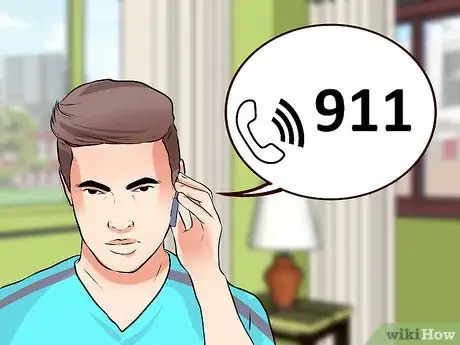

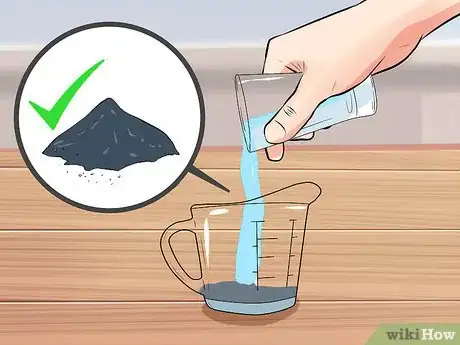
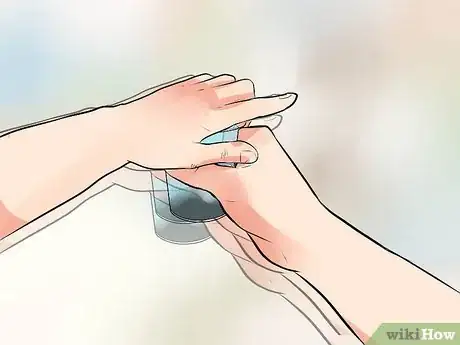

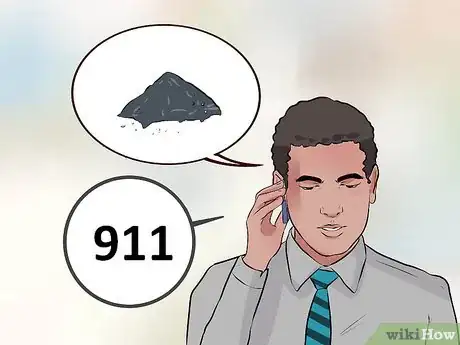
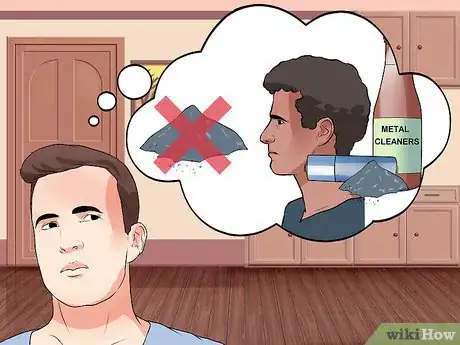
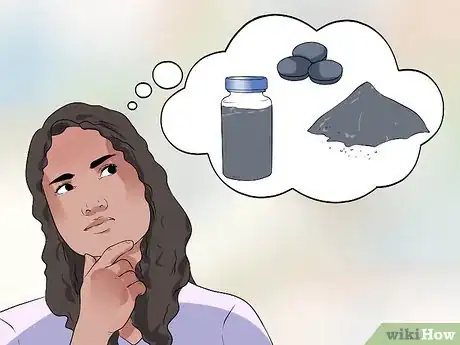
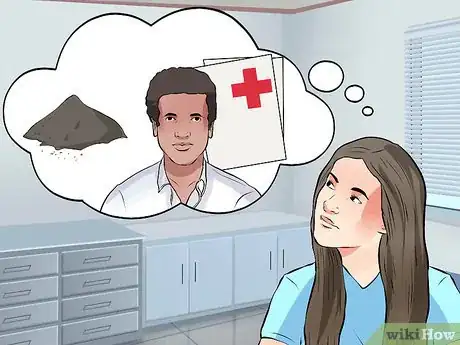
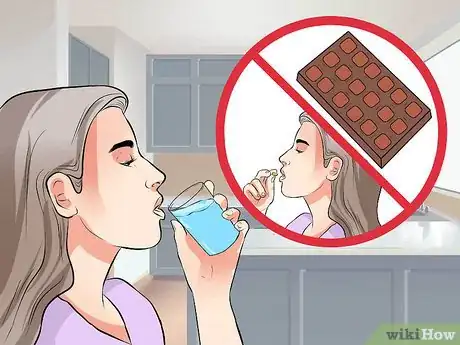
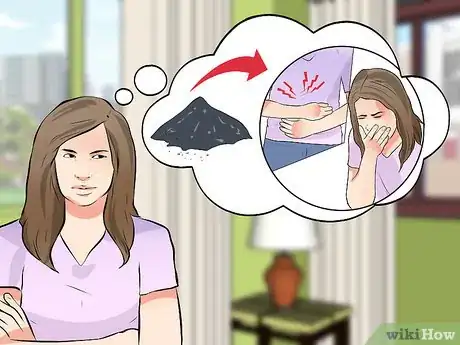
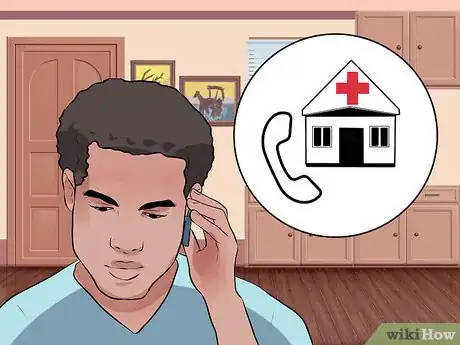

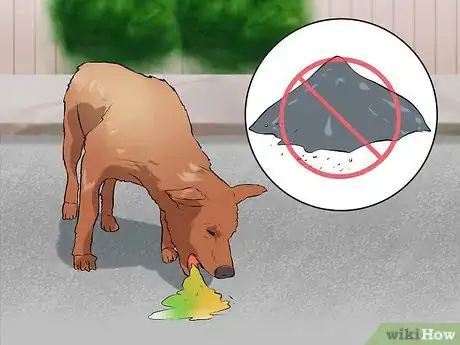
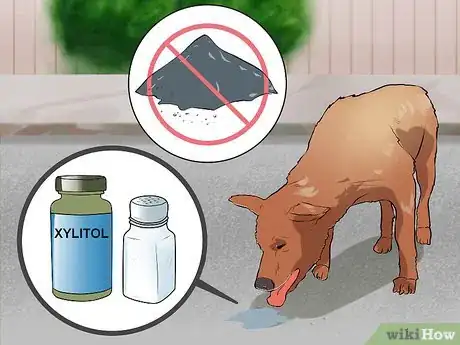
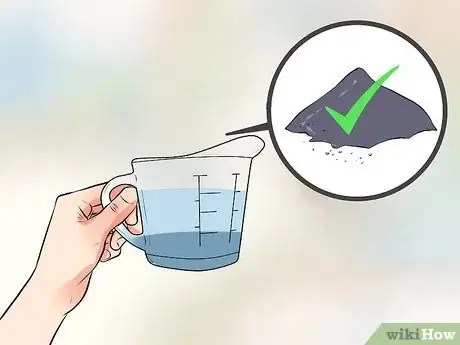
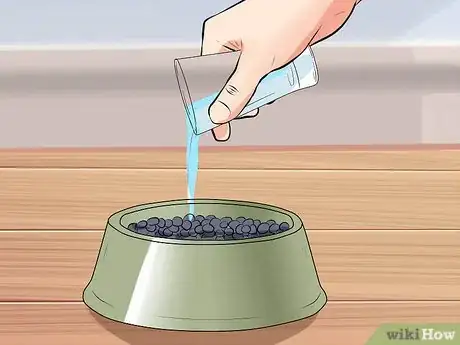




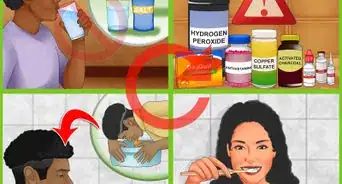
















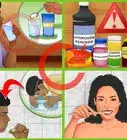



































Medical Disclaimer
The content of this article is not intended to be a substitute for professional medical advice, examination, diagnosis, or treatment. You should always contact your doctor or other qualified healthcare professional before starting, changing, or stopping any kind of health treatment.
Read More...